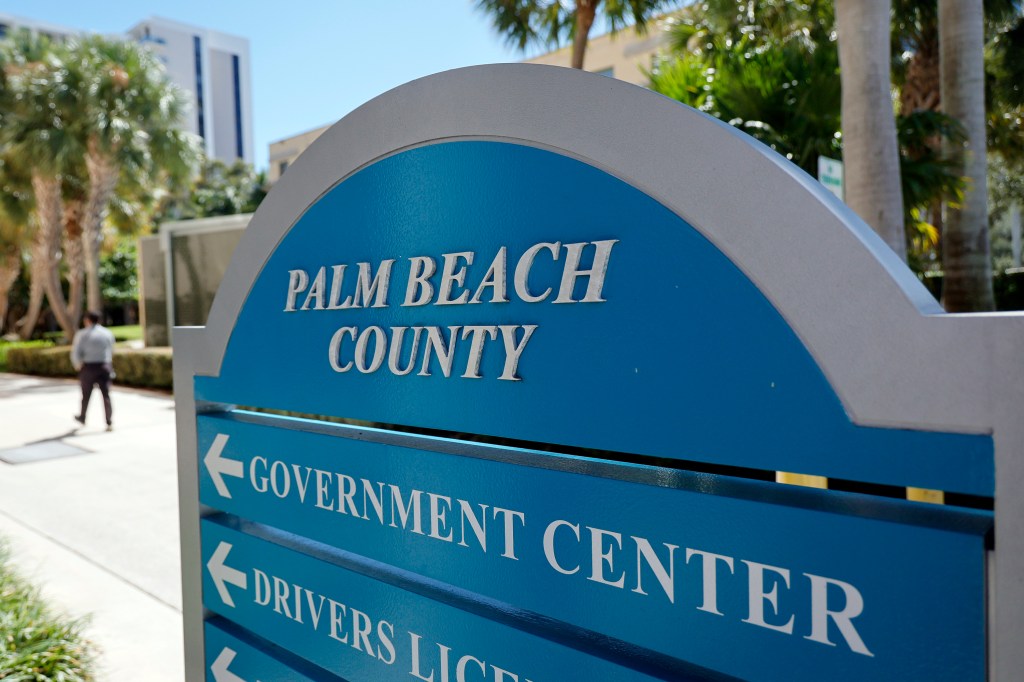The state’s chief financial officer offered an early example of what Florida DOGE considers wasteful spending in Palm Beach County — but the county says it’s not as the CFO is making it out to be.
“Palm Beach County, their paratransit costs tripled in the last two years,” CFO Blaise Ingoglia said last week during a news conference alongside Gov. Ron DeSantis. Ingoglia was talking about various local governments’ spending, as part of the findings so far by the state’s Department of Government Efficiency.
Palm Beach County’s Chief Deputy County Administrator Todd Bonlarron told the South Florida Sun Sentinel on Monday that the county’s paratransit budget has increased, but it has not risen as much as Ingoglia claimed.
Paratransit services are low-cost rides for people who require a “curb-to-curb delivery system” due to physical limitations, such as a disability, that make it virtually impossible to travel without assistance, Bonlarron explained.
In 2023, Bonlarron said the county’s paratransit costs were about $53 million. For the 2025 fiscal year, the paratransit costs now are around $70 million.
“It’s been pretty well-documented, our paratransit costs, we’ve brought that to our Board of County commissioners a number of times in public hearings and workshops,” he said. “Not tripled, but it has had some increases.”
Bonlarron said labor and insurance costs are primarily to blame for the increases.
“It’s an important service in places where you have transit just because you’ve got a lot of people in locations that can’t get to a fixed route,” Bonlarron said. “You work with folks that have got those types of limitations, but still need to live, and unfortunately, folks can’t necessarily always afford to live by where they need to be to go to the doctor, or go to school or go to work.”
Paratransit services are especially vital in Palm Beach County, which houses one of the state’s largest populations of seniors and “a number of people that qualify with disabilities under the (American Disabilities Act),” Bonlarron said.
“We’re a county that’s well over 2,000 square miles, movement around that for any transit system is presented with a number of challenges,” Bonlarron said. “But the reality is that individuals who live here or seniors who have disabilities are all very active and very productive members of our community, and for a lot of them, of our workforce as well, and a lot of them have retired here to call Palm Beach County in Florida their home. So you’re dealing with a multitude of different reasons why we might provide more service than other places.”
Over time though, county officials have adopted some “not necessarily wildly popular” practices to control the costs, Bonlarron said. This includes making the paratransit eligibility requirements stricter and increasing the one-way trip cost from $3.50 to $4.
DOGE remarks
Ingoglia only briefly mentioned Palm Beach County during a news conference on Oct. 1 in Jacksonville as Ingoglia rattled off what he called “ridiculous examples of wasteful spending” by municipal officials.
The news conference was one of the latest in a series of stops in Ingoglia’s tour around the state to call attention to what he says is government misspending. Among the other examples offered were microaggression training in Orlando, a welcome sign in Pensacola and an equity and inclusion director in Gainesville.
“The list goes on and on and on,” Ingoglia said at the news conference. “These egregious examples of wasteful spending are exactly why property taxes are rising.”
Palm Beach County is one of several municipalities facing the state’s scrutiny.
Last week, Ingoglia accused Broward County officials of increasing spending by about $190 million more than warranted by inflation and population growth since 2020. County Commissioner Steve Geller called the analysis “factually incorrect,” and the county later said it couldn’t “verify the sources of data used to arrive” to the numbers being cited by the state.
Ingoglia has said DOGE reports are due to come out soon, detailing even more specific examples of “excessive” spending by various governments.
Until now, the lack of examples has generated frustration among some local officials. After Ingoglia said DOGE considered some of Palm Beach County’s spending “a little eye-popping,” some county staff questioned how they could move forward with a $9 billion budget approval without knowing the specifics behind that remark.
At the time, Commissioner Marci Woodward said she was very uncomfortable voting on the county’s budget with the potential for ‘eye-popping’ findings. Mayor Maria Marino called the DOGE audit process “very disappointing.”
Still, Bonlarron said he and the rest of the county staff only want to collaborate with the state, as they have so far.
Bonlarron said, “We have worked very closely with the governor’s office and the CFO’s office on the audits and then following up with information with them, so we obviously want to be partners in whatever the state asks, and we try to create a good partnership with them and throughout the DOGE experiences that we’ve had.”
“It’s our intent to want to work with them as best as we possibly can. Are there going to be some things that we may disagree on? It’s possible, but our hope is that we can share with them as much as we possibly can, they can share the same back to us and be able to either justify the things that we’re doing or come up with other reasonable options or alternatives.”
